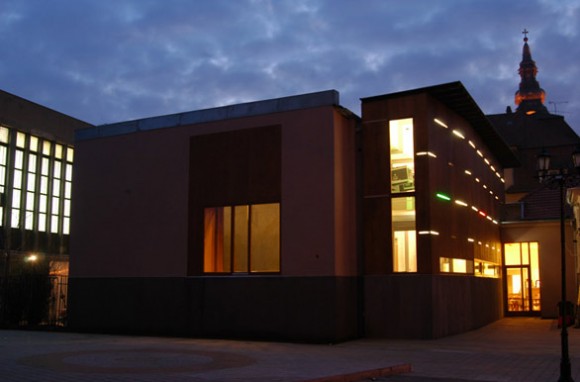 Tisza Cinema (www.tiszamozi.hu), whichwas originally a Jewish culture centre, has been in operation since 1955 and in the early 1980s was transformed into a 3-hall facility. Purchased by the cultural association Tisza Mozi Kft. in 1996 the cinema underwent an overall renovation carried out courtesy of the grants approved by the Ministry of National Cultural Heritage and also by the contribution of Tisza Mozi Kft. and the Jewish community.
Tisza Cinema (www.tiszamozi.hu), whichwas originally a Jewish culture centre, has been in operation since 1955 and in the early 1980s was transformed into a 3-hall facility. Purchased by the cultural association Tisza Mozi Kft. in 1996 the cinema underwent an overall renovation carried out courtesy of the grants approved by the Ministry of National Cultural Heritage and also by the contribution of Tisza Mozi Kft. and the Jewish community.
The cinema has now a main hall with 140 seats and a second hall with 50 seats, and it is hosting two film festivals and various other events. Tisza Cinema has been a member of Europa Cinemas since 2003. Also since 2003 it has been involved in film production by coproducing and distributing its first feature film, Zhiguli.
It is a family business: Istvan is the director of Tisza cinema and the festival director, his wife Eszter is in charge of the programming of the cinema, while his daughter Eva is responsible for the programming of the festival.
Istvan Demeter studied film studies and has been coordinating the Film Festival of Fine Arts since 1988, becoming its director in 2000.
FNE: What is the biggest challenge of running a cinema such as yours?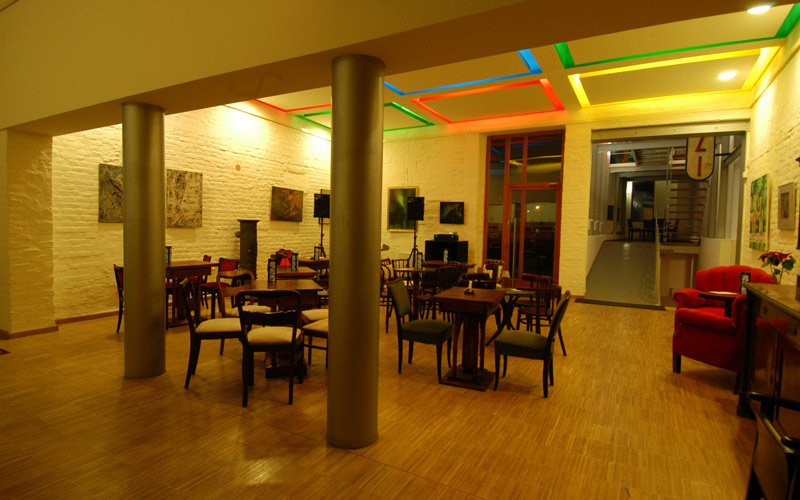
The running of an art cinema in Hungary was in a negative spiral before the economic crisis has even started. The support for cinemas has been decreasing and it has become unpredictable, especially since 2010 when it ceased. The standard also became lower in the area of film production, therefore many film production companies decided to close their doors. The standard of films brought into the country also has gone down and money for advertising has dried up.
Due to the economic crisis people have less money to spend on culture; more people have decided to download movies from the internet and adults seem to join the youngsters in doing so. Thus the income of art cinemas has been reduced as well as their visitors. Because of the digital switch the number of 35mm copies has decreased so art cinemas which could not pay for the digital equipment yet can only screen films with a delay. All of these barriers are representing the biggest challenge of running an art cinema.
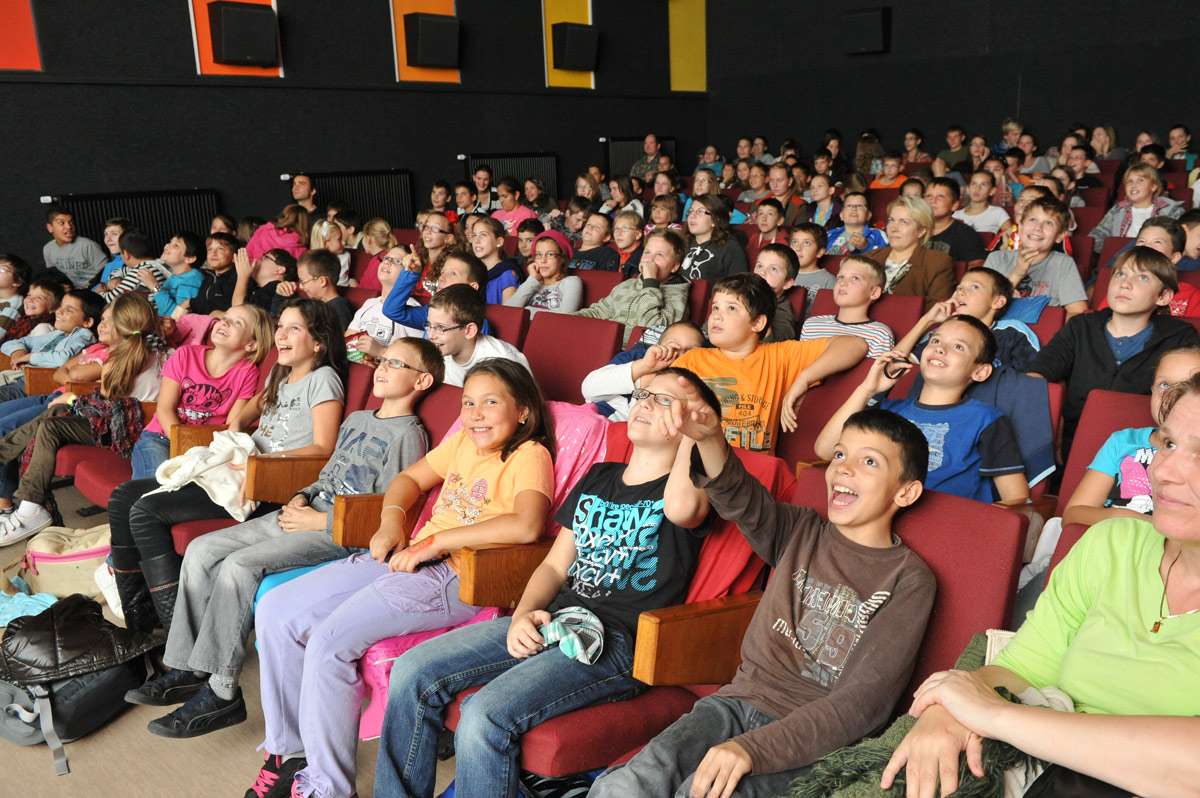
We screen all kinds of films except 3D movies and multiplex films. We prefer European movies and those Hungarian works that are valuable. We give these movies more preference than for others. We also provide an opportunity for films that are not usually shown in other art cinemas, for example films from our festivals or films from cultural institutions or films from other national film festivals. We only regret that not many European films for children are reaching our cinema. If there are any it is hard to fill the screening rooms as children are used to American films so their taste is formed by these movies.
The biggest problem is that their parents and teachers have taken them only to these films because they are only exposed to these advertisements. If we show European movies for children it proves to be the case that they like and appreciate these films, even though these are different from the ones shown in multiplexes. School children really liked for example: Knerten gifter seg/Twigson Ties the Knot, bigger ones preferred Le gamin au vélo/The Kid with a Bikeor Un heureux événement/A Happy Event or When Santa Fell to Earth.
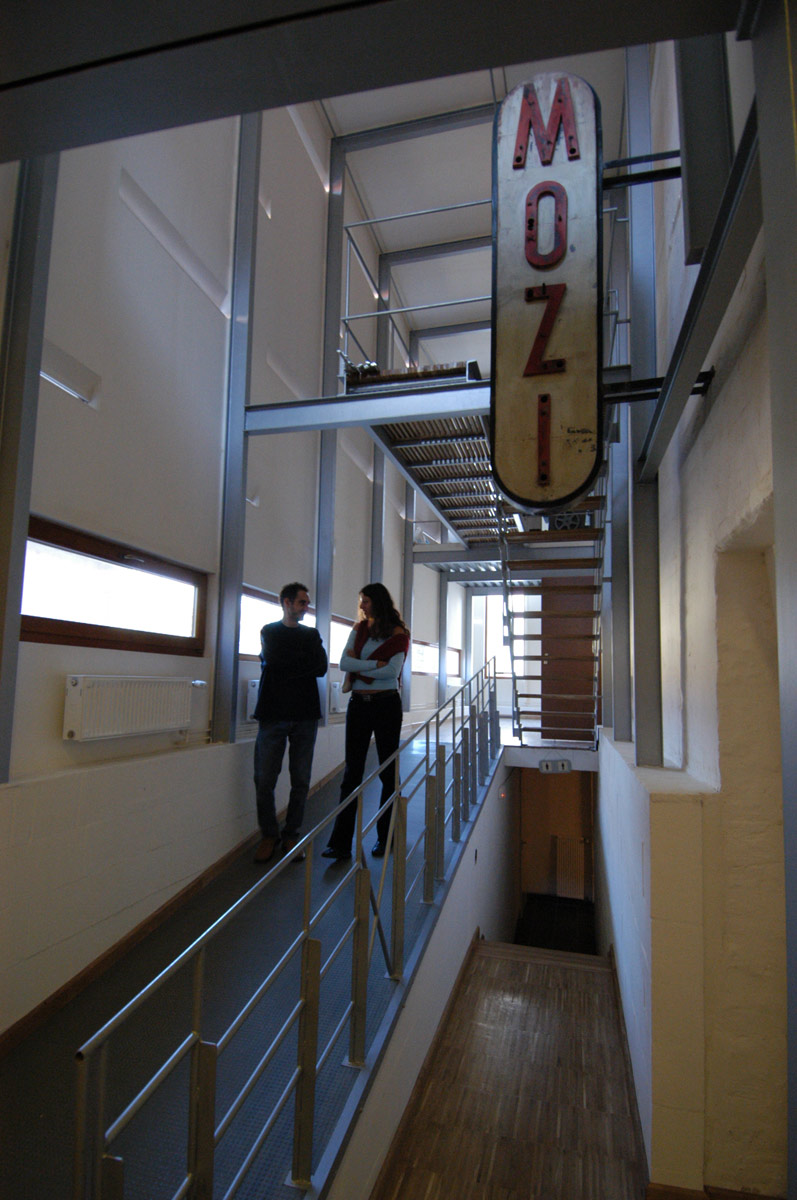 The cinema is home to many festivals, events and film weeks. Why are these important and what do they achieve?
The cinema is home to many festivals, events and film weeks. Why are these important and what do they achieve?
We have two different film festivals, a fine art film festival in the even years and a scientific one in the odd years. All kinds of films can be found in both film events, everything from animation to feature films. Since 2000 our festival has become international, we get films from 30-50 countries annually. The audience usually consists of students from universities and colleges from different towns and artists and filmmakers from all over Hungary and from abroad as well. Residents mostly come to the evening screenings and programs.
Thanks to the festival our cinema has become one of the main places for festival goers. We have an active relationship with the Hungarian and foreign filmmakers and also with the national universities where filmmaking is taught. These institutions often ask for films from our archive to use them for teaching purposes. It has already happened twice that students from foreign universities have attended our festival, which was a very unique opportunity for both the Hungarian audience and the festival as well. We hope to continue this in the future and invite more students from other countries.
Every year we involve them as a student jury so they watch and discuss every film and take an active part in the festival. This is also the goal of the festival, to involve more youngsters and to highlight scientific and artistic films to them. These occasions help these films to compete with international works, to inspire filmmakers, and to guide the talents.
What is the role of Europa Cinemas (www.europa-cinemas.org) for cinemas such as yours and why is it important?
We really appreciate the organization and running of Europa Cinemas which helps the operation and subsistence of art cinemas and also helps cinemas to popularise European film and culture. Europa Cinemas also fosters the activities of cinemas regarding films, information and technology. It holds conferences annually, providing the opportunity to meet other cinema owners and also to presents important topics and discussions.
The organisation can also help cinemas by giving them support for digitalisation and for running art theatres as well. It would be great if it could contribute more to the distribution of European films in the European countries especially with regard to films for children and youth. Digital technology could be profitable in this field.
How does a cinema like yours serve the local community?
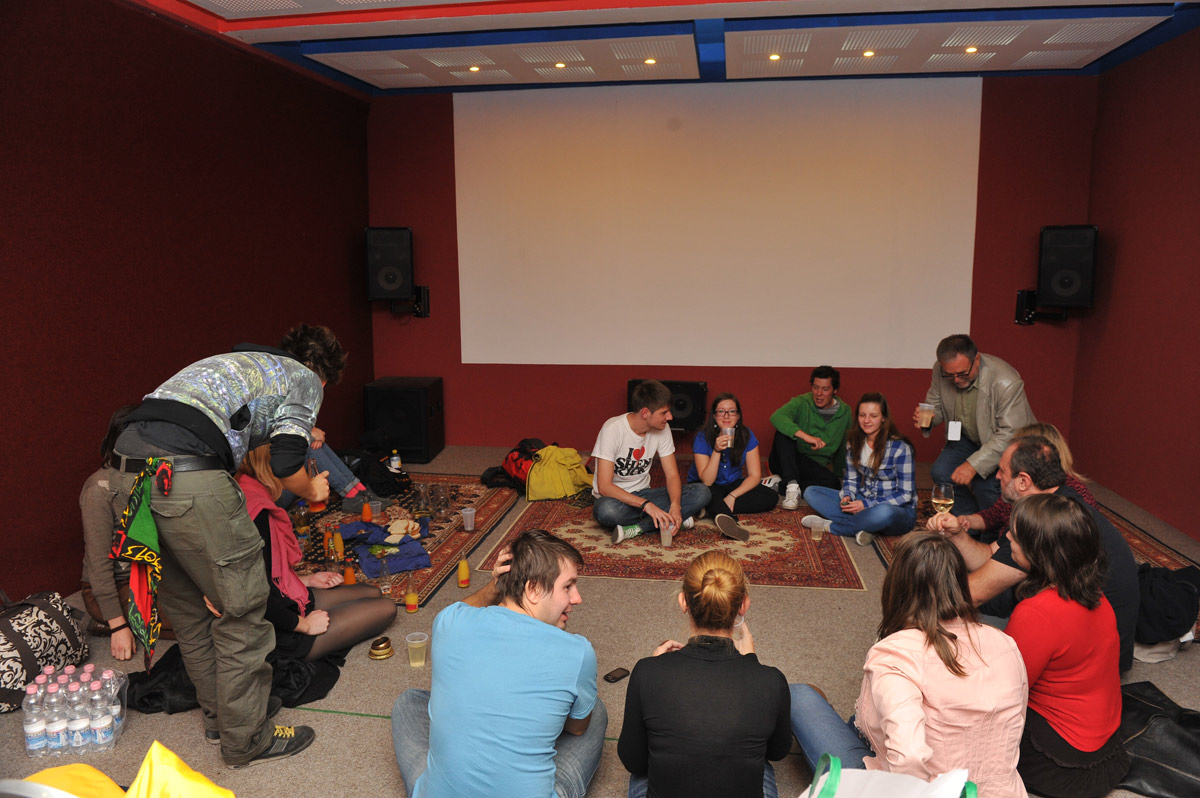
Can you say something about your work with young audiences?
We are trying to build a conscious contact with youth meaning that we aim to represent ourselves for every age. Once a week parents bring their children for a special occasion called Baby Nursing. We offer films and a „playground” for kindergarten children. Unfortunately 30-40 min films (consisting of short episodes) have disappeared lately. We are lucky to have one programme like this per year; this could be supported by Europa Cinemas. We organize school screenings for primary school students, we try to offer movies which belong to the curriculum, entertain and educate at the same time. Starting last year we have a colleague who keeps in contact with the teachers and organises screenings and film series for them. We had a very successful quiz organised between the schools where more than 1,000 people watched a film.
We have a more difficult task with the high-school students. They rarely choose us when it comes to going to the cinema. They can only be addressed when we invite a teacher and he/she persuades the students to come and watch a movie. Therefore we often provide opportunities for school bands to get on stage and have a concert in our café. These occasions help to build relationship with the students. We also hold film series regarding themes like life guiding and anti-drug living which the youth seems to enjoy. We also try to involve them in the organisation of programmes. This is the second year when we held summer film camps for them during which they can get to know how to make films and they learn how to discuss movies. Despite the above we still struggle to attract more youngsters into our cinema.
What about the digitalisation of cinemas? How will it affect your work and your cinema?
We will soon manage to digitalise one of our screening rooms with the help of the municipality of our city and the state. However we will not change our profile because we get the support for being an art cinema. We will equip our cinema with 3D technology but we will select carefully what we screen. We do not wish to have the same programme as the multiplexes offer. We aim to freshen our programming and we look forward to the new changes!
Contacts
Tisza Mozi Kft.
5000 Szolnok
Templom út 4.
Hungary
Phone: +36 56 511270
+36 56 511271
Fax: +36 56 420038
This email address is being protected from spambots. You need JavaScript enabled to view it.
This email address is being protected from spambots. You need JavaScript enabled to view it.

